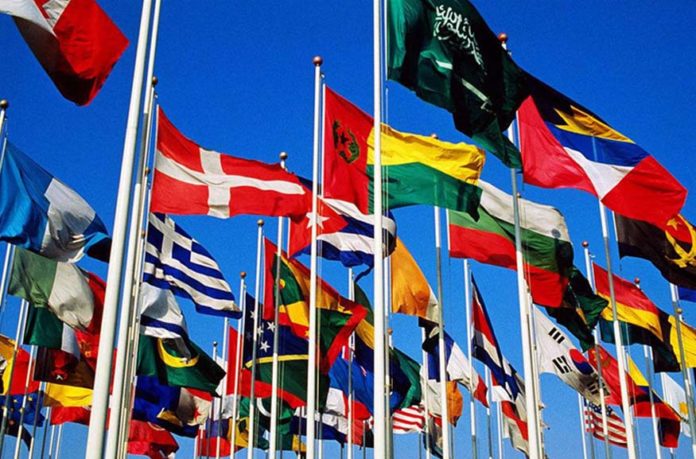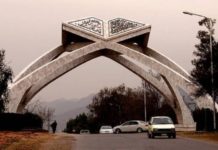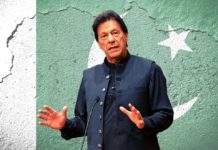Disclaimer: The Eqbal Ahmad Centre for Public Education (EACPE) encourages critical and independent thinking and believes in a free expression of one’s opinion. However, the views expressed in contributed articles are solely those of their respective authors and do not necessarily reflect the position or policy of the EACPE.
Thousands of years back, in the times we smugly like to think of as the “pre-civilized” times, people moved around in small groups defined by common ancestry, beliefs and traditions called tribes. This sticking together in multiple numbers improved the odds for survival. A group of, say, hundred people was better than a family of four for hunting animals for food and fighting off predators. As human populations increased, the number of tribes increased too, more so in fertile areas which formed the cradles of civilization. This brought about inter-tribal wars for control of natural resources and dominance, the stronger tribes subduing the weaker tribes to make a much larger group. Merging of tribes meant end of warfare and saving of precious lives. Larger groups also resulted in progressive joint activities like agriculture, pooling of special skills and aggregated community establishments which afforded better civic amenities. Thus a village grew to a city, city-state and a kingdom. Man had well realized larger groups and pooling of resources and manpower was beneficial to progress and ultimately survival of the species, which is the ultimate innate goal for mankind. Over the centuries, we saw smaller kingdoms and fiefdoms merge into nations.
Closer home, the Indian subcontinent, including the present day Pakistan, is a recent example of a conglomeration of small kingdoms and states which was, over various periods in history, defined by different territories held together by any one ruler. At no times, whether it was the Mauryan Empire or the Mughal rule, was the entire country as we know of it now, united. The history of our sub-continent is a narration of small kingdoms perpetually at war with each other driven by petty territorial greed of rulers. The bloody Kalinga war was fought in 262 BC between the Mauryan Empire and Kalinga, which are now two states of a common nation. There were many more of such wars in which the nationalists of each small state fought and lost lives for their little territory! In 1756, a handful of traders from a tiny overseas country realized that this fragmentation of the local people could give them much more that just tea, silk and spices. The British seized huge realms of fertile territory and subservient people to rule! It took a long hundred years for the people of this sub-continent to decide that they would come together and regain their freedom, lives and dignity. Hence came about the creation of a nation (unfortunately ending up in two), where brave-hearts from Sind and Kashmir in the north to Tamil Nadu in the south fought together and drove out the British.
A nation can progress and thrive only if there is an environment of peace and goodwill with its neighbours.
The narration of the above chapters in the evolution of the history of mankind and the Indian sub-continent underlines the curious change in the perception and definition of the concept of nationalism. Follow the evolution of nationalism along with the evolution of society, state and politics. During the period of tribal existence, it was imperative for survival that the loyalties of members lay with the tribe and that lived and fought together. Nationalism was not a formal concept yet. As the entities of social groups grew larger and took on more formal forms, member loyalties were re- defined to spread to the larger group. It could be a bit confusing for someone whose ancestor proved his nationalism for Kalinga by fighting the Mauryan king Ashoka in 262 BC. The erstwhile kingdoms are now part of the same nation, and India hails Ashoka as one of its heroes, changing the definition of nationalism for the progeny of this soldier! So maybe this blood bath in which 200,000 people lost their lives could have been avoided if King Padmanbha of Kalinga and King Ashoka had not sounded a clarion call for people to march to the battlefield and lose their necks in name of nationalism, the whole disguised aim being to feed their personal greed for power and property.
Around the 18th century, there came around a term called “nationalism” which denoted a crystallization of feelings of loyalty and devotion to one’s nation above all. It came to Asia in the 20th century. Suddenly all political leaders, monarchies and oligarchies started impressing upon the obligation of nationalism upon gullible populations they wanted to control and rule. The projection of nationalism was twisted and turned to serve the interests of the rulers, not the citizens at large. Instead of promoting nationalism as love and devotion to one’s nation (which does not mean exclusion of goodwill for other nations); it came to highlight the parochial, the different and the particular. Your neighbour is different; beware and perceive him as a threat. Only if the common citizen feels threatened will power mongers emerge as saviours; armies will flourish, power centres will be strengthened and the failures in governance be swept aside for the bogey of national threat from outside. If you are a good national, you will support the slogan of destroying the neighbour, applaud the uncouth, aggressive foot-thumping parade at the border and cheer yourself hoarse for your team during cricket matches. But there is another breed of the good national who thinks deeper and contrary to the given definition of nationalism. This national does not like the body bags that bring back soldiers from the front; the diversion of funds from food, education and health towards instruments of destruction; regional conflict and disquiet at the cost of progress. This national knows that growth for any nation can come only in harmony with others.
From tribes to villages to city-states and nations, the world has evolved into a global entity. Survival and progress of nations is interlinked in more ways than one. The meaning of nationalism must necessarily evolve from stressing the parochial and different to the inclusive and universal. Anyone who truly puts the interests of her/his nation above one’s own must realize this. A nation can progress and thrive only if there is an environment of peace and goodwill with its neighbours. Citizens of countries like Pakistan and India must decide whom to pledge their loyalty to; the well being of their nation or chest thumping, theatrical, pseudo- nationalist powers. It spells the difference between survival and hunger, illiteracy and poverty. Weak nations eventually find themselves at the mercy of the global powers. India and Pakistan must remember that it is just seventy years since they have thrown off the yoke of British imperialism.
About the Author:

Dr Ranjit Powar is a psychologist who has served with the Punjab Civil Services and earlier as a lecturer with the Punjabi University, Patiala. Besides writing as a freelancer, she works with NGOs for imparting employability training to high school students.








